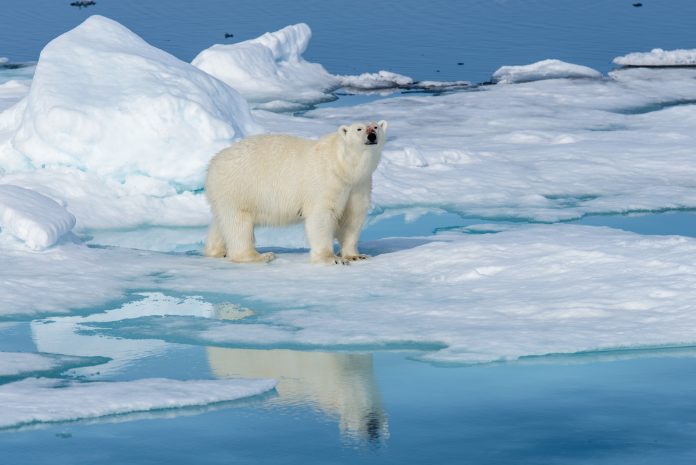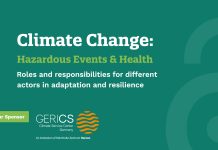As COP25 started last week, here we examine what it is, if it can solve the climate crisis and who will be attending
COP25 stands for the 25th Conference of the Parties, which is a 12-day conference that will take place from 2-13 December 2019 to discuss the ever-pressing issues of the climate crisis.
Where is COP25 held in 2019?
This year, COP25 is being held in Madrid under the Chilean government. It starts just days after the EU collectively declared a ‘climate emergency’, sending out the same warning made in early November by more than 11,000 scientists from 150 countries that we must solve the climate crisis.
Initially, COP25 was scheduled to be held in Brazil. However, it moved to Chile after Brazil’s right-wing President Jair Bolsonaro, widely criticised by environmentalists for his policies on the Amazon region, took office last January.
Last year’s COP24 was held in Katowice, Poland, and next year’s COP26 will be held in Glasgow, Scotland. Nearly 23,000 delegates from all nations attended COP24 to discuss the special report on the impacts of 1.5C warming by the Intergovernmental Panel on Climate Change (IPCC).
Ahead of the conference, the UN Secretary General, António Guterres, warned that “the point of no return was no longer over the horizon.”
What will be discussed at COP25?

COP25 can be seen as a stepping stone to the most important year for global climate efforts to solve the climate crisis since the Paris Agreement in 2015.
Countries are expected to improve their plans to cut carbon emissions and potentially outline their long-term plans to achieve net-zero emissions. The talks at this year’s COP need to tidy up outstanding questions about the rules of the Paris Agreement.
Article 6 of the 2015 Paris Agreement, which focuses on greenhouse gasses, is one of the most controversial, but arguably one of the most important topics that need to be resolved in COP25.
Article 6 allows for the use of carbon markets to help nations cut emissions and to fund actions to aid developing nations to cut their emissions. Carbon markets have been around since the 1997 Kyoto protocol. They work through allowing developed countries to meet their targets by buying carbon credits for projects that reduce emissions in developing countries.
This strategy allowed developed countries time to develop measures to reduce their emissions, whilst developing countries received money in aid to developing a green future. However, there were issues with the strategy that devalued the system and favoured developed nations.
The carbon market collapsed in the financial crisis of 2008 and has never fully recovered. Therefore article 6 could allow the revival of the carbon market which may help fund projects that prevent deforestation and the emission of greenhouse gases.
However, some see carbon markets as a way for developed countries to carry on with business as normal and paying developing countries to clean up the pollution of their actions. Many demand that developed countries should take more action to reduce their own emissions through a change in the system.
On the other hand, carbon markets have allowed for many improvements in tackling climate change and senior vice president of the US Environmental Defence Fund, Nat Keohane, said:
“Markets are cooperation, and they are a pathway to reducing emissions fast. Cooperation among developed and developing countries is crucial.”
The difference in opinions over article 6 and carbon markets may cause disputes in reaching a pact that aligns with the Paris Agreement at COP25.
As Chile is still technically the host of COP25, even though the conference is being held in Madrid, it is likely that issues of importance to Latin America will be prominent.
Why is COP25 so important?
COP is the only global forum that diplomats from all nations meet to discuss the climate crisis, where all countries have an equal status in deciding on agreements. Change can only come if all nations are in agreement with each other. This gives smaller nations a greater voice against the likes of the big states like the USA, Russia and the EU.
However, this can cause issues when countries such as Saudi Arabia hinder more ambitious action.
The talks cover all issues from homes, transport, farming and industry and nations will have to decide how to emissions can be avoided completely or offset through measures such as afforestation.
Agreeing on strategies and measures to keep global warming below 1.5C at this years COP25 is vital if there is any chance of solving the climate crisis. Time is running out and viable solutions need to be put into action now.
Who are the key players?
Brazil will be one to watch, especially in debates over Article 6. The country was initially supposed to hold the conference, but after a change in government and budget restrictions, Brazil withdrew its offer to host the event. The president has also come scrutiny for his plans to deforest indigenous reserves for development. Likewise, the USA will be a key player.
The country played a vital role in the run-up to the Paris Agreement, which continued until Donald Trump became president. The president is known for believing that climate change is a ‘hoax’. Other potential obstructers include big oil powers such as Saudi Arabia, Russia and Venezuela.
Small economies such as New Zealand, which recently passed a law to reach net-zero emissions by 2050 are likely to push for more ambitious targets. Key to progress at COP25 is China, the world’s biggest emitter, and India, whose emissions are rapidly rising. There will also be a large spotlight on the EU.
What about Greta Thunberg?

Greta Thunberg, a 16-year-old Swedish environmental activist has travelled on an emission-free boat across the Atlantic to be in Madrid for the climate crisis discussions at COP25. She is expected to make a speech during the conference to not only urge nations to stop discussing climate change and to demand action on the issue but to also ensure the younger generation’s voice is heard.











